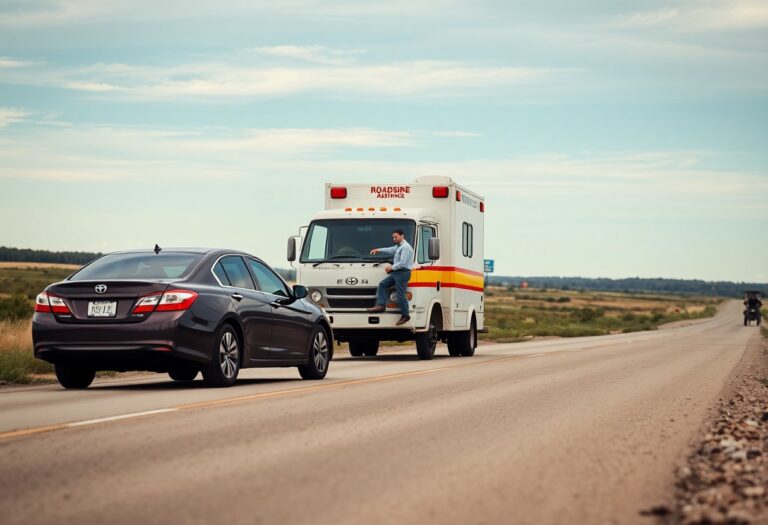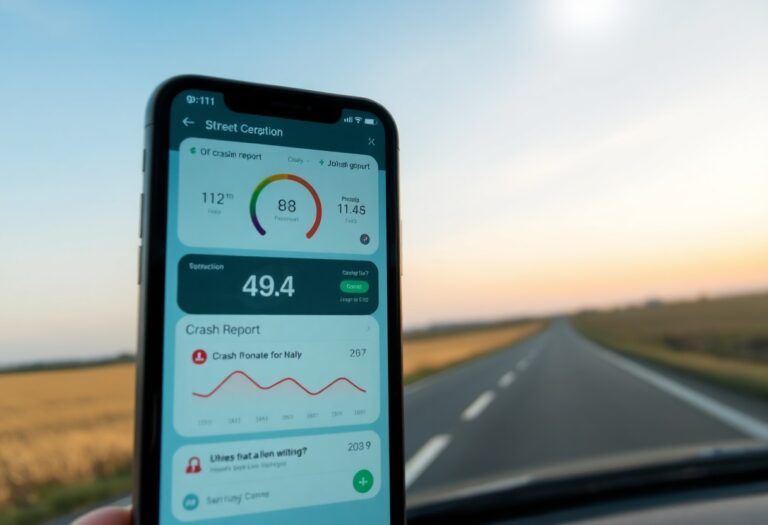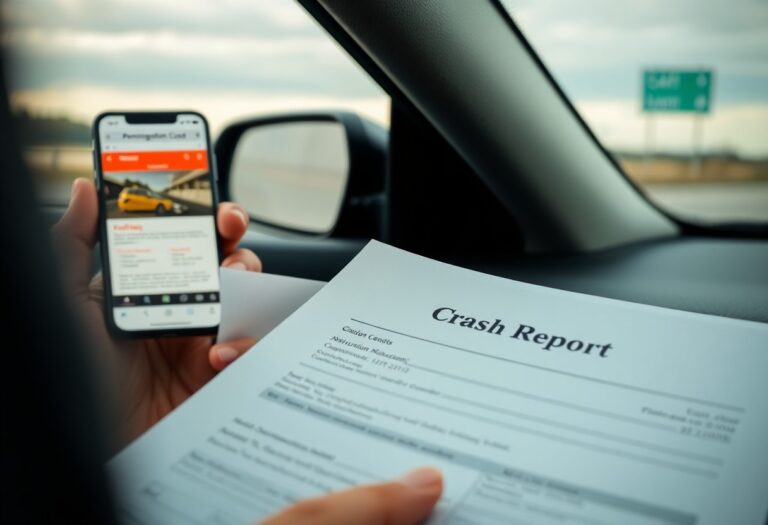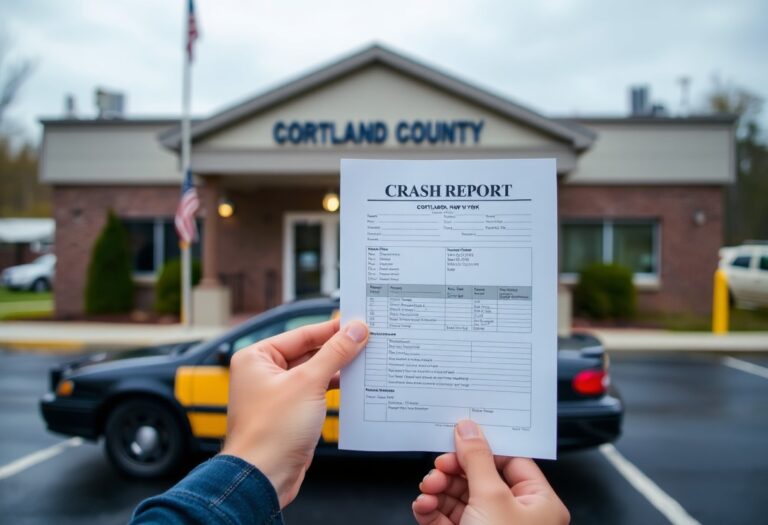You may need to access your accident report in Pulaski County, Arkansas, but navigating the process can be overwhelming. Whether it’s for insurance purposes or legal reasons, knowing where to find your report is important. This guide will walk you through the steps to easily retrieve your report, ensuring you have the important documentation you need, when you need it. Understanding the resources available to you can make a significant difference in your experience and help you manage any after-effects of the incident efficiently.
The Process of Obtaining Accident Reports in Pulaski County
Obtaining your accident report in Pulaski County is a streamlined process, but understanding the necessary steps ensures you receive it without unnecessary delays. The report contains vital information, such as details about the incident, parties involved, and any law enforcement actions taken. You can request your report in person, online, or via mail depending on your convenience, all while adhering to specific guidelines outlined by the local authorities.
Step-by-step Guide to Requesting Your Report
| 1. Gather Needed Information | Include your full name, date of the accident, and report number if available. |
| 2. Choose Your Request Method | Select whether you want to request in person, online, or by mail. |
| 3. Complete the Required Form | Fill out the accident report request form provided by the police department’s website. |
| 4. Pay Any Necessary Fees | Prepare to pay a nominal fee, usually around $10, for the processing of your report. |
| 5. Await Processing | Reports may take several days to process; check the department’s website for updates regarding delays. |
Common Pitfalls and How to Avoid Them
Many people encounter common issues when trying to obtain their accident reports, leading to unnecessary frustration. Missing paperwork, incorrect payment amounts, or failing to provide sufficient identification can all delay the process. Ensuring that you follow the outlined steps carefully and double-check your submission can prevent these problems and expedite your access to important information.
Reviewing your information before submission is important. Often, requests get denied simply because individuals forget to include a personal identification or fail to provide accurate details about the accident. Double-check payment amounts to avoid rejection due to underpayment. Being proactive, and contacting the department ahead of time with any questions can save you time and help you navigate the process more smoothly. Taking these precautions will lead to a smoother acquisition of your accident report.
What to Expect: Details Within Your Accident Report
Your accident report will provide a comprehensive overview of the incident, detailing the circumstances surrounding the crash. Expect to find key information such as the date, time, and location of the accident, as well as the names and contact details of all parties involved. Additionally, your report will include descriptions of injuries, vehicle damage, and weather conditions, which are vital for understanding liability and assessing damages.
Understanding the Key Components of the Report
Key components of your accident report include the narrative of events, witness statements, and diagrams illustrating the scene. These aspects work together to provide context and clarity, helping you and any involved parties grasp the severity of the incident and any legal implications that may arise.
How to Interpret the Findings for Your Claims
Interpreting the findings in your accident report can significantly impact how you approach any claims against insurance companies or other responsible parties. Pay particular attention to the assigned fault and any cited traffic violations, as these elements can affect your claim’s strength and potential compensation.
For instance, if the report indicates that another driver was cited for a traffic violation at the time of the accident, this evidence could bolster your case for claiming damages. Conversely, any mention of negligence on your part could hinder your claim. For optimal results, align the report’s findings with your legal counsel to ensure that you navigate the claims process effectively, leveraging the report’s insights to strengthen your position.
The Role of Law Enforcement and Insurance Companies
Law enforcement plays a pivotal role in documenting the events surrounding an accident, often directly influencing the outcome of insurance claims. Officers collect evidence, interview witnesses, and create official reports that detail the circumstances of the incident. Insurance companies rely on these reports to assess liability, determine payouts, and prevent fraudulent claims. As a result, both parties depend heavily on accurate and thorough documentation to navigate the complexities of post-accident procedures.
Why Accurate Reporting Matters for All Parties
Accurate reporting serves as the foundation for resolving any disputes that may arise after an accident. For victims, a precise report ensures they receive the compensation they deserve, while at-fault parties benefit from clear documentation that supports their case. Insurance companies also lean on these documents to fairly evaluate claims and expedite settlements. Any discrepancies can lead to delays or unfavorable outcomes, making accuracy vital for everyone involved.
How to Communicate Effectively with Law Enforcement
Effective communication with law enforcement during an accident is key to achieving a comprehensive report. Be clear and concise when providing details about the incident. Avoid emotional outbursts and remain respectful, as this will foster cooperation from officers. Always ask for clarification if you do not understand something they say, and make sure to provide any relevant information or evidence that may assist in their investigation.
When engaging with law enforcement, it’s beneficial to remain calm and collected, even in stressful situations. Use a friendly tone and keep your statements factual. For instance, instead of expressing frustration about the circumstances, focus on delivering an organized account of events you witnessed. This approach not only helps officers understand the situation better but also establishes a collaborative atmosphere, facilitating a smoother interactions that can result in a more accurate report. Don’t hesitate to request a copy of the accident report afterward, as this document will be vital for your insurance claims moving forward.
Navigating Legal Implications after an Accident
Understanding the legal landscape after an accident can feel overwhelming. From determining liability to filing insurance claims, each step carries significant implications for your financial and physical recovery. Collecting pertinent data from your accident report is a key component in building your case and can influence everything from insurance settlements to potential court proceedings. Taking swift and informed action can directly affect the outcome, so don’t hesitate to lean on legal professionals and resources that can guide you through this process.
When to Hire a Lawyer: Signs You Need Legal Assistance
Recognizing the right moment to enlist a lawyer can make a significant difference in the trajectory of your case. If you’re facing serious injuries, excessive medical bills, disputes over liability, or an uncooperative insurance company, these are strong indicators that professional legal assistance is warranted. Engaging an attorney early can help safeguard your interests and ensure that you navigate the complexities of your situation effectively.
Potential Outcomes Based on Report Findings
The conclusions drawn from your accident report can significantly shape the outcomes of any legal actions you may pursue. These findings often influence settlements, liability determinations, and even court rulings. If the report indicates that a specific party was clearly at fault, you may find grounds for a strong claim. Alternatively, a lack of evidence supporting your case may lead to lower settlement offers or difficulties in pursuing litigation. Understanding these potential outcomes helps you make informed decisions regarding your legal strategy.
In more detail, the accident report will generally contain imperative information such as traffic citations, witness statements, and diagrams of the accident scene. If the report points to negligence on behalf of another party, you might secure higher compensation for damages. Conversely, if you’re found at fault, it could limit your options for recovery and may even result in increased insurance premiums. Legal representation can help interpret the report’s findings and strategically position you for the best possible outcome in negotiations or court, helping you effectively advocate for what you deserve.
Resources Available for Residents of Pulaski County
Residents of Pulaski County have access to a myriad of resources designed to assist them during challenging times, especially after an accident. These resources encompass local agencies with specialized staff who can help you navigate the aftermath of an incident, as well as online tools that streamline important processes. Whether you need medical assistance, legal guidance, or emotional support, these resources are invaluable for residents striving to regain stability and move forward.
Local Agencies and Online Tools for Easy Access
Local agencies, such as the Pulaski County Sheriff’s Office and the Arkansas Department of Transportation, offer online portals where you can easily access important information, including accident reports and safety resources. Websites like mypulaskicounty.com provide user-friendly navigation to help you find what you need quickly. By leveraging these tools, you save time and can focus on your recovery.
Community Support Systems and Legal Aid Options
Community support systems in Pulaski County are robust, providing avenues for emotional reinforcement and practical assistance after an accident. Numerous organizations offer resources to help you navigate financial burdens, mental health challenges, and legal concerns. Legal aid options are also available through groups like the Legal Services of Arkansas, which offer free or low-cost services to ensure you have access to competent representation, regardless of your financial situation.
Among the support systems available, you’ll find programs that address specific needs such as counseling services for trauma, financial assistance for medical bills, and workshops that guide you through the legal landscape in a user-friendly manner. Many local churches, non-profits, and community organizations also provide outreach and help connect you with legal professionals. This interconnected web of support can make a significant difference in your ability to overcome the aftermath of an accident in Pulaski County.
Conclusion
As a reminder, if you need assistance locating your accident report in Pulaski County, Arkansas, you can rely on our expertise. We know the local processes and can guide you in obtaining your document efficiently. Your time and peace of mind are important, and we’re here to help you navigate the requirements seamlessly. Don’t hesitate to reach out for the support you need in these situations.













